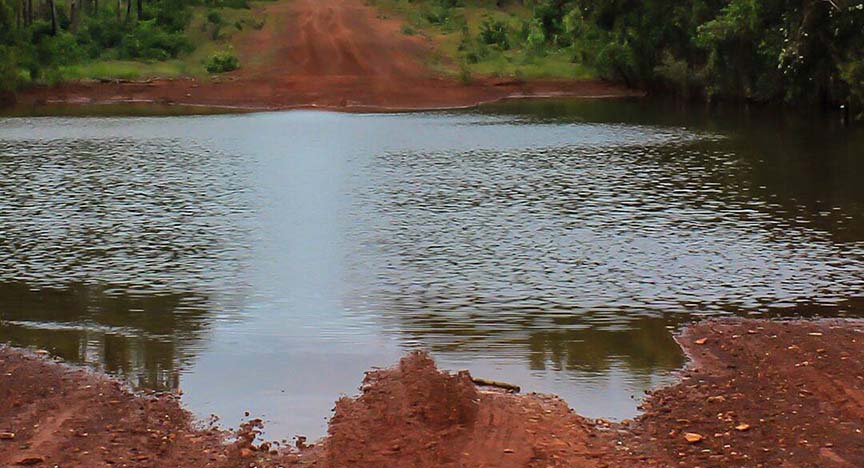
Health officials are advising residents to be cautious when coming into contact with soil and muddy water, following a spike in cases of a dangerous disease in the Cairns region after the heavy rain and flooding.
There has been 14 confirmed melioidosis cases reported since December 2023. This is a high number of cases for the time of year.
Melioidosis is a serious disease found in ground water and soil. It causes death in up to 50% or more of untreated cases and up to 20% of treated cases. Early recognition and treatment is important.
Tropical Public Health Services Cairns director Dr Richard Gair said the disease occurred when skin abrasions or wounds came into contact with wet soil or water contaminated by the bacteria Burkholderia pseudomallei.
‘Melioidosis is very uncommon in healthy adults, and rarely seen in children, but can occasionally occur in people with diabetes, kidney problems, lung problems and people on medication that lowers their immune system,’ he said.
‘Symptoms of acute Melioidosis may include fever, cough and difficulty breathing; the effects can be very severe and often require hospitalisation for antibiotic treatment. Sometimes the disease presents as superficial skin infections or abscesses in various part of the body.
‘If anyone has noticed non-healing wounds or persistent fevers over several weeks, then they should be seen by their GP and checked for this infection, as it can require prolonged antibiotic treatment.’
Prevention of Melioidosis
There is no vaccine to prevent Melioidosis. During the wet season, northern Queensland residents, particularly those with an underlying medical condition, should take the following precautions:
- Wear protective footwear when outdoors
- Wear gloves while working in the garden, on the farm etc.
- Cover abrasions and sores with waterproof dressings
- Wash thoroughly (preferably shower) after exposure to soil or muddy water, and after working outdoors
- Diabetics should maintain optimal foot care, with help from a podiatrist if necessary.